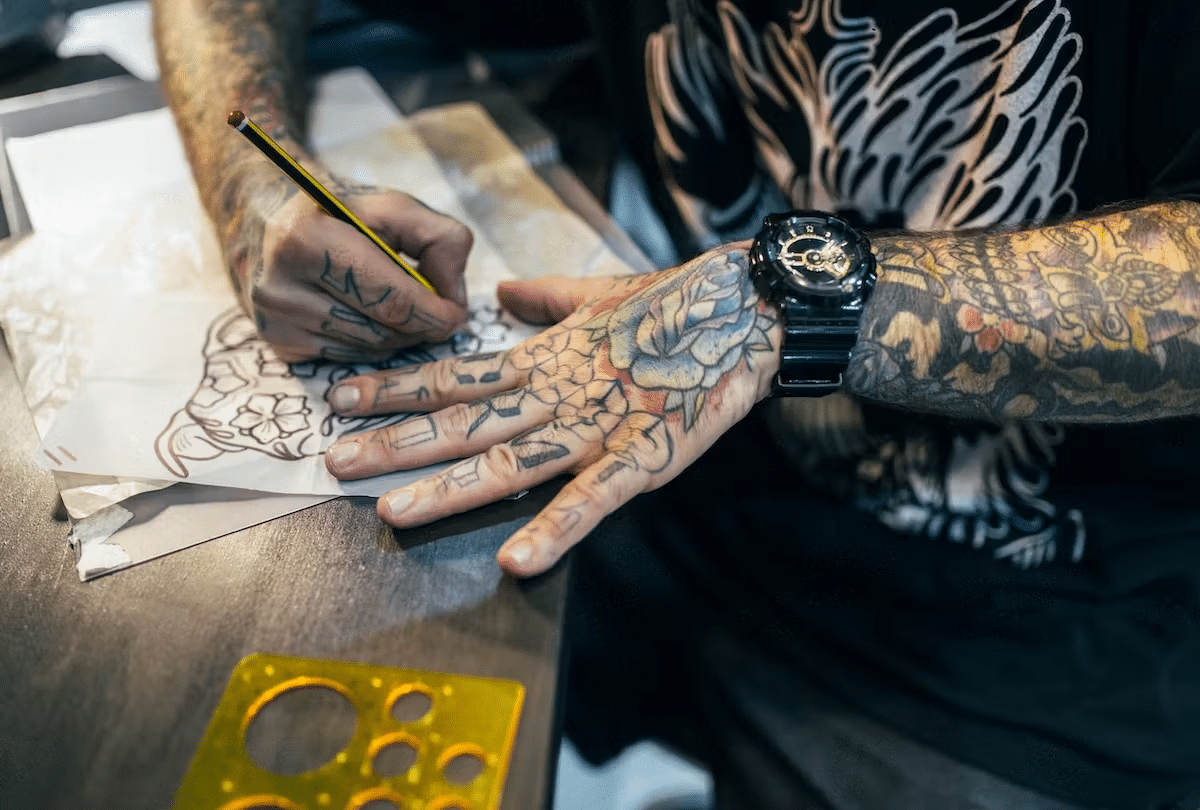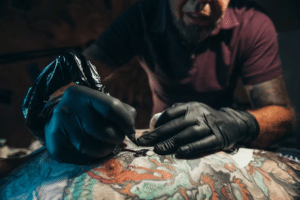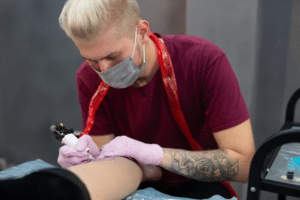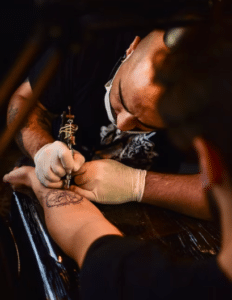Exploring Tattoo Prices in the UK: Are They Affordable?
Tattoos are more than just a work of art – they express your personality. Whether you’re looking for a small, subtle design or something bold and vibrant, getting a tattoo can be an exciting experience!

But before you take the plunge, it’s important to consider the cost of your desired tattoo. In this article, we’ll explore how much tattoos typically cost in the UK so that you can make sure you have enough funds to get the perfect body art.
The Prices Of UK Tattoos
When considering getting a tattoo, one of the most important questions on everyone’s mind is how much it will cost. There’s no one answer to this question as numerous factors come into play when determining the overall cost of your tattoo. However, we can give you an idea of what to expect and help you understand what factors affect the price.
In the UK, tattoos are typically priced at an average rate ranging from £80-£120 per hour. This hourly rate may vary depending on where in the UK you’re located and who you choose as your artist.
Furthermore, some artists may charge more for custom designs or intricate details that require extra time and effort. Additionally, certain types of tattoos, like cover-ups or those requiring colour, may cost more due to their complexity.
Tattoo Cost Based on Size
Getting a tattoo requires careful consideration and planning, especially when it comes to the cost. One of the most important factors determining a tattoo’s price is its size. In the UK, tattoos are priced per hour or per design, and each artist has their pricing strategy.
Smaller tattoos are generally less expensive than larger ones because they require less time and effort.
For instance, a small tattoo that can fit on your wrist might cost around £50-£100 if done by a professional artist. Meanwhile, medium-sized tattoos covering an entire arm or leg could cost anywhere from £200 to £500 depending on complexity.
Large tattoos, such as full sleeves or back pieces, can take several hours to finish and may require multiple sessions with an artist. This means they will cost significantly more compared to smaller designs.
Minimum Charge for a Tattoo
Firstly, the design’s size and complexity will be considered. The larger and more intricate the tattoo, the more time and skill the artist requires.
Additionally, location plays a role in pricing as certain parts of the body may be more difficult or time-consuming to tattoo.
The experience level of an artist can also impact their rate; those with more experience and higher demand may charge more per hour.
It is common for studios to have a minimum charge which usually ranges from £30-£50.
Design of the Tattoo
When it comes to cost, tattoos vary depending on size and complexity. Simple designs such as small symbols or lettering may cost anywhere from £50-£100, while more detailed artwork could run up to £500+.
Remember that lower prices do not always equate to quality artistry; therefore, finding an experienced artist with a great portfolio is important.
In the UK, there are many reputable tattoo shops with talented artists who take pride in their work, so make sure to do your research and pick the right one for you.
Placement of the Tattoo
One of the most important decisions you’ll make when getting a tattoo is where to place it. The location of your tattoo, as well as how visible and noticeable it will be, can significantly impact how much it will cost. In the UK, certain areas of the body are more popular for tattoos than others.
One factor that can affect the cost of your tattoo is its placement. Generally speaking, tattoos in more visible areas such as the arms, chest or back tend to be more expensive than those in less visible locations like your ankle or wrist. This is because larger tattoos require more time and skill from the artist, and they may need to charge more for their services in order to compensate for this added complexity.
Another consideration when deciding where to place your tattoo is how noticeable you want it to be.
Professional equipment
In the UK, where local councils regulate tattoos, it is important to understand how professional equipment affects the overall cost.
Professional tattoo equipment can significantly increase the overall cost of getting a tattoo.
High-quality machines and needles are essential for achieving clean lines and precise shading, which is especially important for complex designs or large pieces.
While some artists may offer lower prices with lower quality equipment, this can result in poor quality work that must be corrected in the future. It’s important to remember that
investing in professional equipment is an investment in your health and appearance.
Location-Based Prices Of Tattoos In The UK
Location and tattoo prices are undeniably two of the most crucial factors to consider when planning to get inked in the UK. While there are many places in the country where you can get a tattoo, it is essential to keep in mind that different areas have varying costs. If you’re looking for an affordable tattoo, research locations with lower living expenses.
The average cost of getting a tattoo varies from place to place, and it’s not always straightforward. Some regions may charge higher rates due to the popularity of tattoos in that area or because of local taxes.
In general, larger cities have more expensive rates than their rural counterparts. Urban areas typically attract more tourists with higher overheads such as rent and bills.
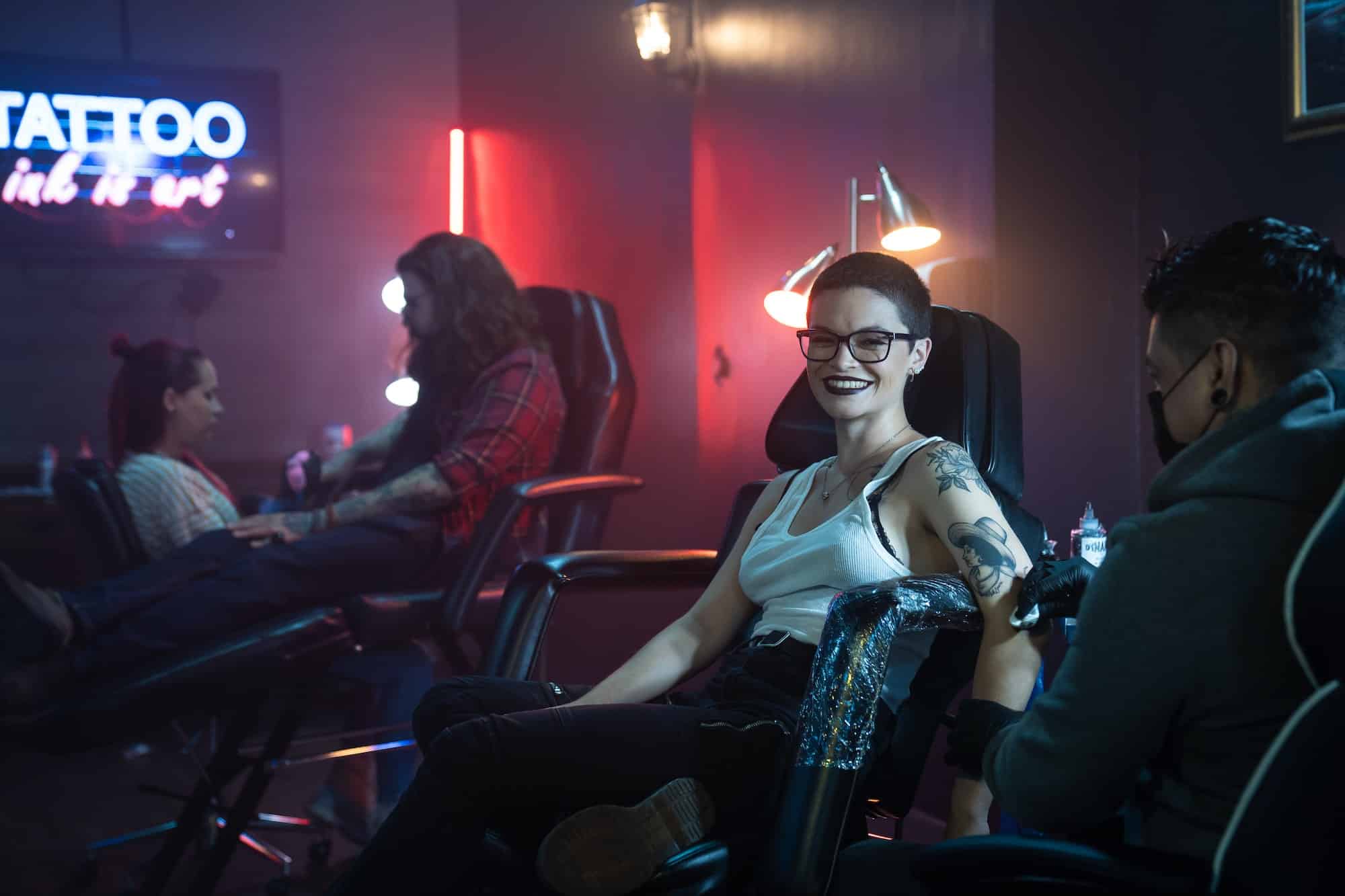
London is known to be one of the most expensive cities in the world, and this applies to tattoos too. Typically, you can expect to pay between £100-£150 per hour for a tattoo artist in London. However, bear in mind that some studios may charge even higher rates for their services. On the other hand, if you’re looking to get inked in Scotland’s capital, Edinburgh, prepare to pay slightly less – roughly between £70-£120 per hour.
While it’s important to consider costs when getting a tattoo, it’s crucial not to compromise quality over price. This means researching potential artists and their work before booking an appointment.
Conclusion
In conclusion, tattoos can be a great way to express yourself, commemorate a special moment, or decorate your body. The cost of tattoos in the UK varies based on several factors, including the size and complexity of the design, the artist’s experience, and location.
Although prices may be higher than expected, finding an affordable tattoo artist who will provide you with high-quality work is possible. Ultimately, it is important to research tattoo artists and their costs carefully before making any decisions.
FAQs
Is there a minimum age requirement for getting a tattoo?
Yes, there is a minimum age requirement for getting a tattoo in the UK. According to the Tattooing of Minors Act 1969, it is illegal for anyone under the age of 18 to get a tattoo. This law applies to all types of tattoos, including permanent and semi-permanent ones. Furthermore, it is also illegal for any person or business to tattoo someone who is under 18 years old.
How long does it take to get the tattoo?
The amount of time it takes to get a tattoo can vary greatly depending on the design’s size, complexity, and location. Generally speaking, smaller tattoos placed on less sensitive areas, such as the arms or legs, can take as little as 15 minutes to complete. Larger pieces that require more shading and detail work can take several hours.
What should I do to care for my tattoo?
Here are some tips to help you care for your new tattoo:
1. Keep it clean: Cleaning your tattoo regularly helps prevent infection and keeps the area healthy. Wash your tattoo with warm water and mild, unscented soap twice daily.
2. Avoid sun exposure: Sun exposure can cause fading and discolouration of tattoos over time, so it’s important to protect your tattoo from direct sunlight as much as possible.
3. Don’t pick at it: Picking at your tattoo can cause scarring or other damage that may be difficult to repair.

